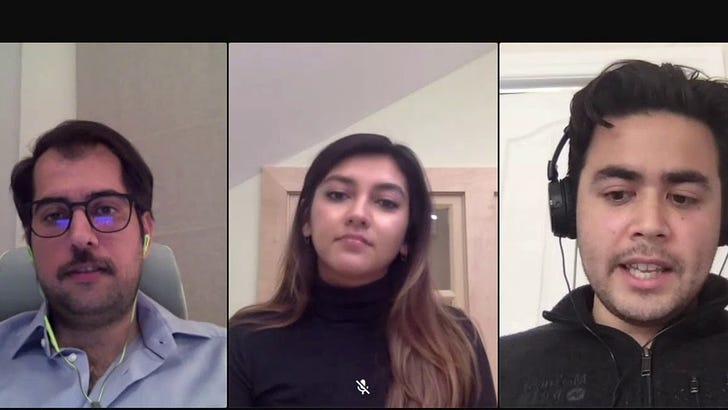Three Lessons from Dartmouth's Tuck School of Business Emerging Markets Conference
Share this with a friend! Subscribe so you don't miss out!
On November 13, I spoke at the Tuck Emerging Markets Conference on the topic of “Exploring Opportunities in the Most Undervalued EM Region.” I was on a panel with former East West Hurricane guest Ali Samir Oosman, where we spoke about opportunities in the Middle East and South Asia.
Here are three takeaways from our panel:
Why You Need More Localisation in Emerging Markets
I shared a story from my previous life working on Facebook’s Global Accounts Team. A major part of my job was essentially functioning as a cross-cultural diplomat. I managed global clients like General Motors and would go to a market like the UAE to work with their Chevrolet Arabia team. The local client and agency would often complain about how the global creative assets created in Detroit would be irrelevant for their Arab audiences. There was a cultural disconnect between the regions.
It sounds obvious, but many Western businesses neglect the deep understanding needed to work across different countries. Creating local strategies for international business is essential. And as emerging markets become a larger part of the global economy and Western business, it’s now more important than ever.
Ali shared his own personal experiences on localisation as a key to adoption in many emerging markets. Places like the Middle East and South Asia are filled with immense cultural, economic, and technological nuance that require a sophisticated approach in order for you to succeed.
How Investment in Emerging Markets Has Evolved
Our moderator Krishna Desai asked about backlash against foreign investors in India and accompanying social dynamics that come from investing in emerging markets. India is a great example of a country whose technology startup scene has made huge progress over the last decade—and with that progress comes significant leverage. Ten or twenty years ago, there was a bigger arbitrage opportunity for foreign investors to take advantage of a more nascent Indian tech scene.
Today, modern India is a place where incredibly successful companies are proudly building the future. There is more foreign capital pouring into emerging markets, competing for places in attractive investment rounds. As emerging markets grow and become more sophisticated, the investment landscape is similarly maturing. While you had to be a little crazy to invest in emerging markets twenty years ago, today you will feel some real FOMO if you’re not investing in emerging markets.
The Role of Government in Emerging Markets
Frankly, governments are less stable in developing countries and the role of government needs to be watched more closely when dealing with emerging markets. We talk about certain governments like the UAE who have successfully put together major initiatives to attract foreign investors, adopt modern technology, and decrease the costs of doing business.
On the other hand, governments in countries like Pakistan are doing things that risk scaring off foreign investors in the short term and potentially inflicting damage in the long term. In the world of emerging markets, government stability is needed to both encourage local innovation and attract international interest.
The level of risk involved in any given emerging market is directly correlated to the quality of its government!
So what do you think? What is your experience working in emerging markets across the Middle East and South Asia?
Hope you enjoyed the conversation and please feel free to share this with a friend!




